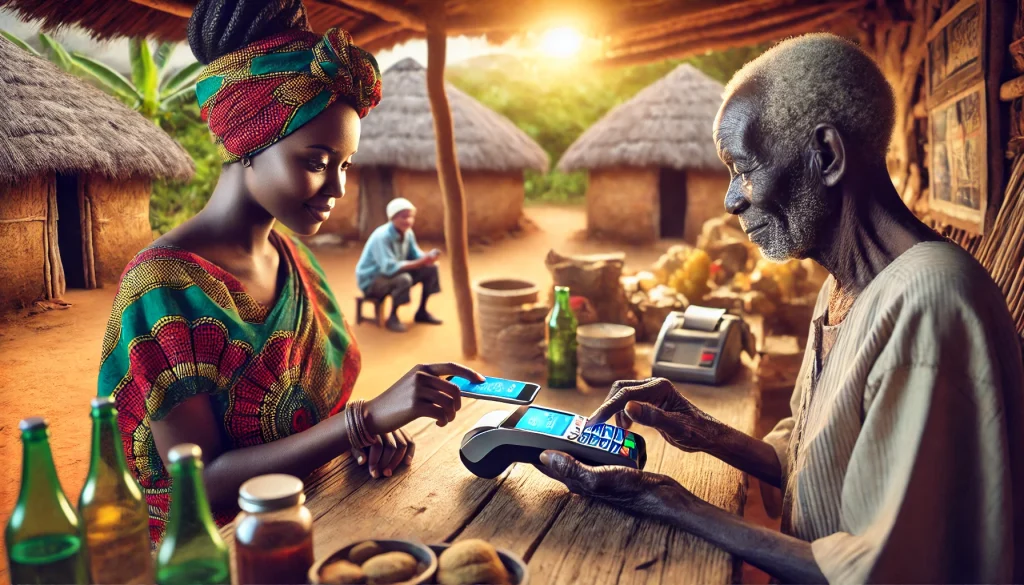The future of digital payments in Africa is a compelling story of innovation, transformation, and opportunity. With the advent of technology and increased internet penetration, the continent is witnessing a rapid shift towards cashless transactions. This change is not only reshaping financial habits, but also opening new avenues for businesses and consumers alike. Digital payments in Africa represent a gateway to financial inclusion and economic growth, creating a dynamic marketplace ripe for exploration.
The digital payment landscape in Africa is burgeoning, with fintech companies emerging as significant players. These entities are leveraging mobile technology to provide secure, efficient, and accessible payment solutions. As the demand for seamless transactions grows, so does the potential for market expansion. This vibrant ecosystem presents numerous opportunities for investment and collaboration, making Africa a focal point for stakeholders eager to participate in the global digital economy.
Rising trends shaping Africa’s digital payment landscape

Several key trends are fuelling the growth of digital payments across the African continent. First and foremost, the proliferation of smartphones and increased internet connectivity have drastically reduced barriers to entering the financial system. As more people gain access to digital platforms, the convenience and ease of conducting transactions electronically are becoming increasingly appealing.
Additionally, governments in Africa are implementing regulatory frameworks that support and encourage cashless economies. This regulatory support is crucial for fostering innovation and ensuring the security of digital transaction systems. By prioritizing digital payment infrastructures, African nations are laying the groundwork for sustainable economic progress and ensuring the longevity of financial tech advancements.
Mobile money services fueling financial inclusion
Mobile money services are at the forefront of transforming financial inclusion across Africa. These services facilitate easy access to banking for individuals who may not have the means to engage with traditional banking methods. By breaking down geographical and economic barriers, mobile money serves as a critical tool for fostering economic empowerment throughout the continent.
The widespread adoption of services like M-Pesa demonstrates the appetite for mobile-based financial solutions. Such platforms enable users to perform a multitude of transactions, from transfers to payments for goods and services, directly through their mobile phones. This method has become particularly beneficial in rural areas, where banking infrastructure may be limited or non-existent.
Innovations in fintech driving digital fransformation
The rise of fintech innovations is significantly altering the digital payment landscape in Africa. Startups and established companies alike are developing creative solutions tailored to African consumers’ unique needs. These innovations include everything from peer-to-peer payment solutions to sophisticated algorithms for fraud prevention and risk management.
Such technological advancements not only enhance user experience but also increase trust in digital transactions. As fintech firms continue to innovate, the digital payment market is becoming more robust, offering better services and solutions to businesses and consumers. This dynamic evolution underscores the importance of embracing technology to unlock the continent’s full economic potential.
Opportunities for growth in Africa’s digital payment sector
The future of digital payments in Africa is teeming with opportunities for expansion and growth. With the continent poised to become a leader in the digital economy, investors and businesses can capitalize on this momentum. Identifying and harnessing these opportunities involves understanding the distinct needs of African consumers and creating solutions that cater to these demands. Strategic partnerships between local and international firms can play a pivotal role in driving growth.
By combining global expertise with local knowledge, companies can develop comprehensive strategies to penetrate the African market effectively. These collaborations can accelerate technological adoption, enhance infrastructure, and ultimately contribute to a thriving digital payment ecosystem. A detailed World Bank report on digital financial services outlines how such partnerships can empower long-term transformation across developing economies.
Building trust and enhancing security
One of the primary challenges in the digital payment sector is establishing trust and ensuring security. As digital payment solutions become more prevalent, so does the need to protect user information and transactions. Developing robust security measures is critical to maintaining consumer confidence and fostering long-term growth in the sector.
Employing advanced technology such as blockchain and encryption can significantly enhance security in digital transactions. By prioritizing these measures, companies can garner trust and encourage wider adoption of digital payment methods. Security-focused initiatives and transparent practices are fundamental to nurturing a resilient digital economy in Africa. To explore practical applications of secure payment technologies, check out this article on digital innovation and cybersecurity.
Expanding financial literacy and education
Improving financial literacy is vital to expanding the reach and effectiveness of digital payment systems. As digital transactions become more common, educating consumers on using these platforms safely and efficiently becomes increasingly important. Initiatives focused on financial education can drive greater inclusion and empower individuals to maximize the benefits of digital payments.
Programs aimed at increasing awareness about digital payment tools and strategies can help demystify technology and encourage more individuals to engage with digital services. Community-based workshops and training sessions can be effective in increasing understanding and trust, ultimately fostering a culture of inclusion and innovation in the digital payment landscape.



